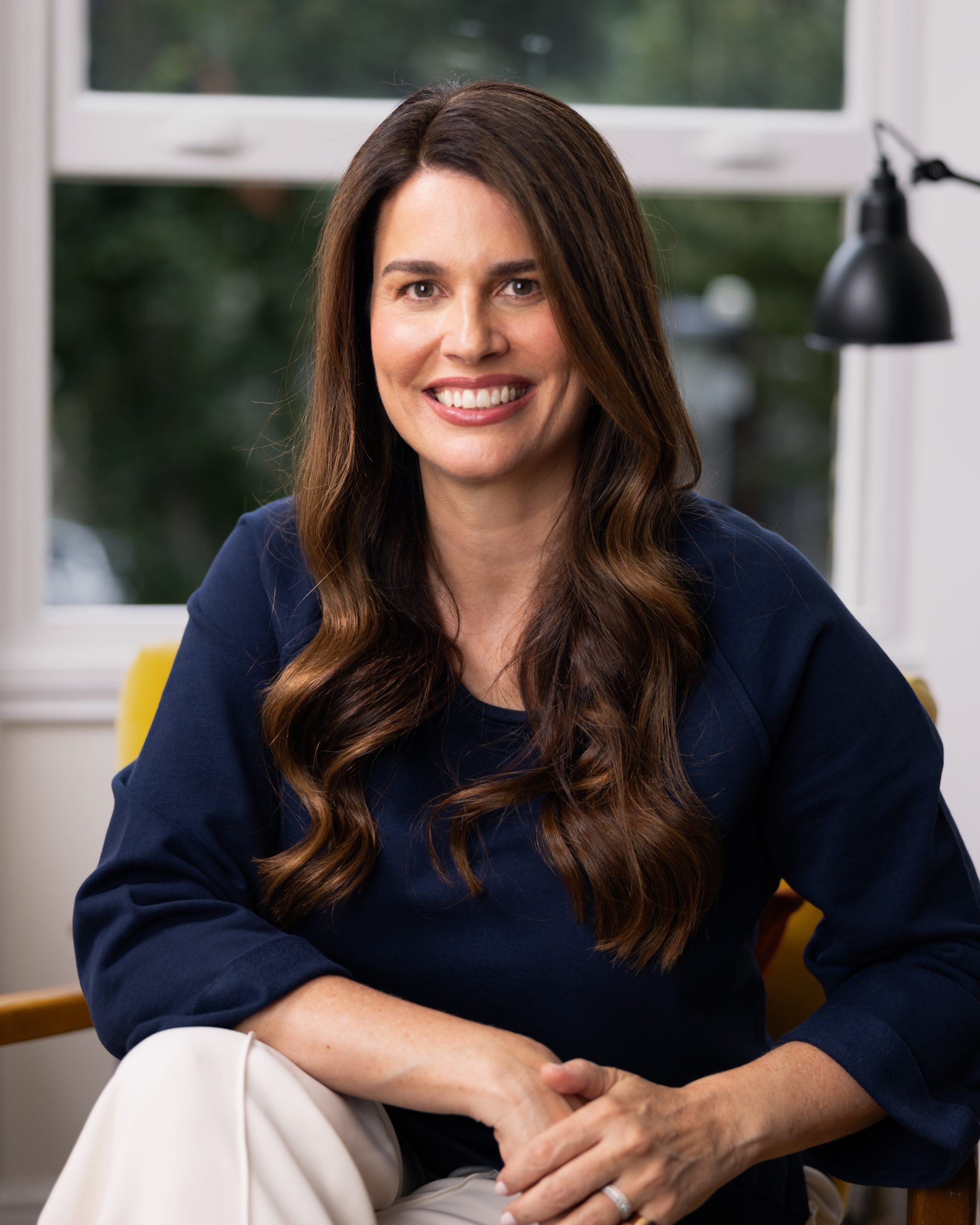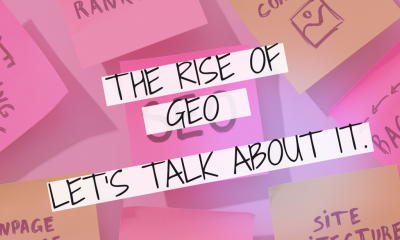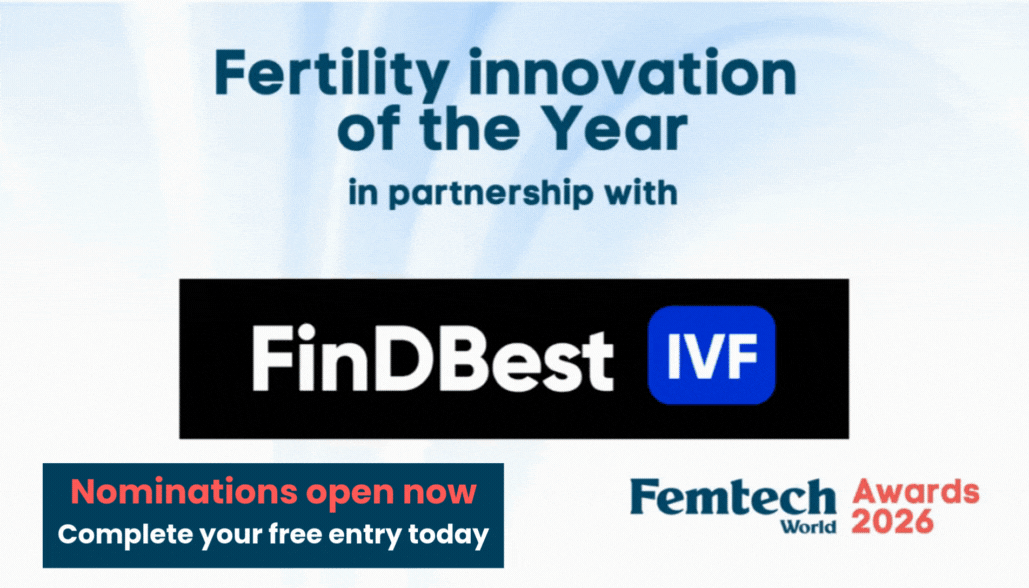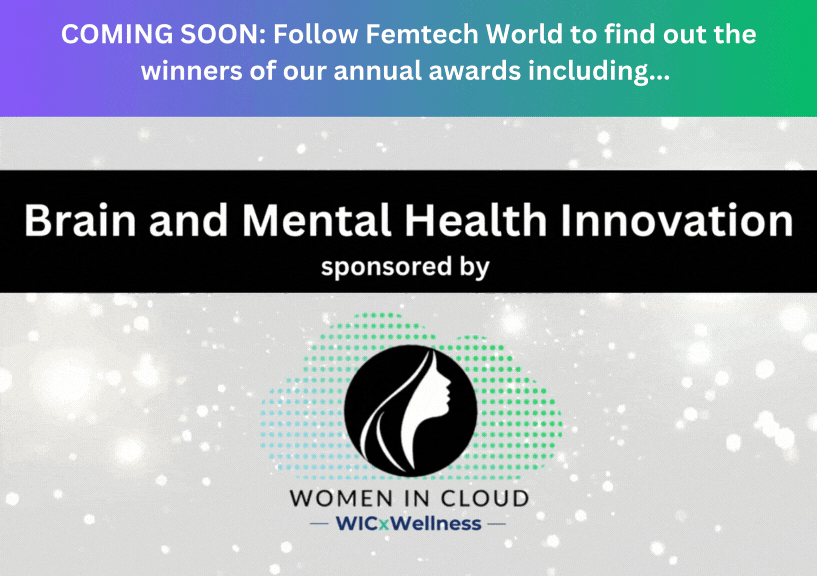Insight
Empowering women and allies in tech is the pathway to a brighter future

Technology has long been hailed for its innovation. Yet, despite its forward-thinking nature, the industry, like many others, has struggled with inclusivity and representation.
Women and underrepresented groups continue to face significant barriers to entry and advancement. Fortunately, the voices and actions of trailblazing leaders, supportive allies, and vibrant communities are paving the way for a more equitable future.
An event that celebrates the work of such individuals is the #empowHERaccess Prestige Awards hosted by the Women In Cloud organisation.
This industry awards platform is not just a matter of recognition; it’s a crucial step in driving systemic change and ensuring a more inclusive tech ecosystem. Exemplifying the time-honoured adage, “If you can see it you can be it.”
We spoke with five of this year’s #empowHERaccess Prestige Award winners, Simone Bennett, principal consultant and elements core (Azure Landing Zones) product owner at Arkahna, Martin Bernier, chief information officer at the University of Ottawa, Julia Armstrong D’Agnese, CEO of Earth Knowledge, Priyanka Mitra, partner at M12, and Akua Opong, senior associate at LSEG, to share their insights on the key areas that are the foundation for a more equitable and inclusive future.
The right mindset to overcome challenges
It all starts from within and tech is no exception. Winner of the Corporate Equality Advocate Awards, Priyanka Mitra, partner at M12 and founding partner of GitHub Fund, offers a compelling perspective on overcoming challenges.
Mitra emphasises the importance of mindset. “I’ve believed that life is always happening for me and that every adversity contains the seed of an equivalent advantage.”
This mindset that every challenge is an opportunity for growth has been instrumental in Mitra’s success, she shared that it has allowed her to “find the good and the learning in the situation or circumstance and choose to leverage difficult, uncomfortable, or trying situations to my advantage”.
Julia Armstrong D’Agnese, CEO of Earth Knowledge and winner of the B2B Women Tech Entrepreneur of the Year Award, echoes the importance of self-belief and adds how instrumental a support system is.
Her advice for aspiring women entrepreneurs includes surrounding oneself with supportive people and maintaining a strong sense of personal vision.
“Be aware and potentially eliminate contact with people, if necessary, who bring you down. They may not have had support nor followed their own light and may undermine yours just as theirs was undermined. Giving birth to a company, new paradigm, new technology is a very vulnerable process, and having others close who could hurt it, will undermine you.”
Being part of a community
Diverse communities are the grassroots support for diverse voices and viewpoints in tech. Finding and engaging with a community provides numerous personal benefits while creating a chain reaction of access to new opportunities.
To Akua Opong, senior associate at LSEG and winner of the Community Leadership and Community Choice Awards, community is so important. She firmly believes the power of collective effort can drive significant change. Her work with organisations like WeAreTheCity and Global Tech Advocates highlights how crucial it is to support and uplift each other.
Opong stated that by “lifting each other as we climb,” we can collectively advance our goals while creating a more supportive environment.
Julia Armstrong D’Agnese echoes this, she believes that participating in networks or communities like Women in Cloud is a crucial pathway for advancing inclusivity.
Both Opong and Julia’s experiences highlight that engaging with and supporting diverse communities not only addresses existing disparities but also drives meaningful progress and innovation in the tech industry.
Supporting underrepresented voices in tech
Supporting underrepresented voices in tech is essential for cultivating a more diverse and innovative industry.
Akua Opong shared from her experience that learning to “communicate effectively and developing negotiating skills to articulate ideas and visions” helped her overcome biases. She stresses the need to build a support network of mentors, sponsors, colleagues, friends, or coaches to provide vital support and insights.
Similarly, Priyanka Mitra underscores the impact of having strong advocates, noting that having mentors, sponsors, and supporters who are “willing and excited to go to bat for you and highlight your accomplishments” is crucial for addressing gender discrepancies in male-dominated fields.
As winner of the Ally of the Year Award, Martin Bernier’s experience further enriches this perspective by emphasising the importance of visibility and trust-building in supporting underrepresented voices.
He shared that being a visible ally is crucial. When asked about his approach to Allyship Bernier shared that it includes “empathy, active listening, and co-mentorship,” stressing that these are the fundamentals for creating a supportive environment.
Bernier believes that by engaging with underrepresented groups allies can better understand their needs and challenges. He noted that regularly seeking feedback builds a trustworthy environment where diverse perspectives can thrive. This holistic approach of visibility, support, and empathy helps foster a tech ecosystem where all voices can contribute to meaningful progress and innovation.
Innovate new approaches for inclusivity
The cornerstone of tech is its dedication to innovation, and the same approach should be applied to inclusivity. A great way for the tech industry to innovate new paths for inclusivity is by actively engaging with diverse community insights and feedback.
Simone Bennett, principal consultant and elements core (Azure Landing Zones) product owner at Arkahna and winner of the Cloud Technologist Visionary Award, exemplifies this approach through her commitment to staying connected with various tech communities.
She states: “I regularly attend user groups, Microsoft or local tech community calls, and meetups to hear what others are doing and share ideas.”
By immersing herself in these forums and incorporating direct feedback from customers and internal teams, Bennett and her company, Arkahna, continuously refine their solutions. This practice ensures that innovations are responsive to the diverse needs of users.
Additionally, Bennett emphasises the importance of “hands-on delivery” and “real-time” feedback, highlighting how interactive engagement can lead to more inclusive and effective technology solutions.
Furthermore, the tech industry can foster inclusivity by blending technological advancements with human support. Bennett’s observation that companies are beginning to realise “the real power lies in combining tech with skilled people” illustrates this shift.
Instead of relying solely on automation, companies are acknowledging the need for human oversight and expertise. Bennett points out that “lifting and shifting servers to the cloud didn’t eliminate the need for someone to manage them” but rather, it highlighted the importance of integrating technology with human skills.
Innovations like Arkahna’s Elements Core product, which simplifies deployment while aligning with best practices, demonstrate how technology can be designed to support diverse skill sets. This approach optimises performance and ensures that technological advancements are inclusive and adaptable to varied user needs.

Diverse and inclusive role models
Seeing role models with diverse identities achieve success or take on influential positions can profoundly impact the tech community.
Women In Cloud believes in the power of role models so deeply that the organisation recently produced its first documentary short film called ICONS. Recently screening at the Oscar-Qualifying HollyShorts Festival, the film shares the impactful journeys of 19 diverse women in tech.
The winners of this year’s #empowHERaccess Prestige Awards exemplify what it means to be an “ICON”. Priyanka Mitra stated that seeing people who looked similar to her ascend to roles of influence in tech and finance has been “instrumental to my progression and success”.
She believes visibility empowers others to ask themselves, “why not me?” and to pursue their aspirations. Winning the Corporate Equality Advocate Award, she hopes, will convey that “there are people out there like myself who care deeply about issues of corporate equality” and that it will inspire others to reach new heights.
Julia Armstrong D’Agnese echoes Mitra’s sentiments describing her experience with #empowHERaccess Prestige Awards as part of an “amazing transformational movement” that recognises traditionally overlooked figures, including women and those from diverse backgrounds.
She emphasises that the recognition she and others receive helps to strengthen and expand this movement, offering women a seat at the table and a platform to share their stories.
Akua Opong shared how role models have positively impacted her life, stating that figures like Katherine Johnson and Maya Angelou have shaped her aspirations and demonstrated the significance of representation and fairness.
Opong views the recognition from the Community Leadership and Community Choice Awards as an opportunity to “convey a powerful message to women and allies that perseverance and advocacy can lead to positive change.”
Similarly, Martin Bernier speaks to the importance of diverse role models, asserting that “success is achievable regardless of background”.
Celebrating change and looking forward
The collective efforts of leaders like Mitra, Armstrong D’Agnese, Bernier, Opong, and Bennett demonstrate the powerful impact of celebrating and supporting women and allies in tech. Their work advances the conversation around equity and provides tangible examples of how to drive change.
The path to a brighter future in tech is paved with the collective efforts of women, allies and supportive communities. By uplifting voices and embracing the strategies and mindsets of diverse trailblazers we can foster an inclusive environment that will move us closer to an industry where everyone has the access to the opportunities needed to succeed.
These leaders and their contributions are not just a recognition of past achievements but a beacon guiding us toward a more equitable and innovative future.
The #empowHERaccess Prestige Awards will return for its fifth year in the summer of 2025. Women In Cloud encourages women and allies in tech to nominate themselves or deserving colleagues to help uplift diverse role models for the future.
You can learn more about the awards, the ICONS documentary, and join the community of over 100,000 women and allies at www.womenincloud.com.

Fertility
Ancient Chinese herbal remedy could improve fertility
News
‘Alarming’ rise in HIV diagnosis rates needs attention, gov says

Alarming increases in HIV diagnoses among women require urgent government focus, with new cases rising 33 per cent between 2019 and 2024, MPs have warned.
Sexual health services are “extremely stretched” with funding “pared to the bone”, threatening the UK’s ability to meet the United Nations AIDS 2030 zero transmission target, according to the Women and Equalities Committee report.
While new diagnoses fell among gay and bisexual men, significant disparities emerged in other groups.
New diagnoses in 2024 compared with 2019 were 35 per cent lower in men exposed through sex with men (1,238 to 810), but 26 per cent higher in females exposed through sex with men (596 to 749).
Overall, new diagnoses decreased 14 per cent in men but increased 33 per cent in females.
Black African and Asian populations saw increases of 80 per cent and 40 per cent respectively, while diagnoses among people of white ethnicity decreased 40 per cent.
The report warned the interim target of an 80 per cent reduction by 2025 is unlikely to be met.
Sarah Owen, chair of the Women and Equalities Committee and Labour MP, said: “With sexual health services stretched as they are, the Government will struggle to meet its adopted United Nations AIDS target of zero HIV transmissions by 2030.
“The forthcoming HIV action plan needs to include additional funding to that already earmarked if sexual health services are to be able to tackle HIV transmission effectively.
“Increases in HIV diagnoses among women are alarming and the action plan must include steps to address these concerns.
“Given the high cost to the NHS of late diagnosis, a fully resourced opt-out community testing programme in areas of high prevalence would represent a significant long-term saving.
“It should be introduced as soon as possible.”
MPs recommended expanding emergency department opt-out testing programmes to GP practices, abortion clinics, women’s health hubs, cervical screening centres and sexual health clinics.
Such expansion should include locally tailored campaigns targeting specific groups.
Just two thirds of heterosexual men and women are having their PrEP needs identified at sexual health services, with even fewer having them met.
PrEP is antiretroviral medication given to HIV-negative people to reduce infection risk.
The committee called for national digital access to PrEP to address delays in accessing sexual health services.
PrEP should also be available through community pharmacies and primary care, with increased walk-in appointments.
Ministers should enable nurses and health advisers to initiate PrEP prescriptions and provide targeted training to reduce missed opportunities, particularly in Black African communities.
Additional sexual health funding beyond that already earmarked for the public health grant will be needed to support increased testing.
Given the high NHS costs of late diagnosis, upstream community testing funding would deliver significant long-term savings, the report stated.
The report also highlighted concerning drops in testing among young people alongside decreased contraception use.
MPs called for public awareness campaigns on testing and contraception specifically targeting this age group.
Opt-out testing expansion to further emergency departments should automatically include hepatitis B and C tests.
Metro mayors should consider whether shared postal testing services across combined authorities might improve access and value compared with current individual local authority approaches.
Owen added: “Meeting the 2030 target requires focus on testing and improved access to PrEP, yet we know that people are struggling to access it, particularly if they live outside of major cities.
“As the Committee’s new report on tackling HIV transmission recommends, the Government should roll out digital access to HIV pre-exposure prophylaxis (PrEP) antiretroviral medication nationally to help address unacceptable delays and challenges in accessing sexual health services and prescriptions.”
“The roll out of injectable PrEP has the potential to be a huge step forwards in the battle against HIV.
“We urge it to be made available to vulnerable people, particularly women who may face barriers in accessing daily tablets.”
Opinion
How sophrology empowers women to navigate cognitive overload

By Dominique Antiglio, Sophrologist, Wellness Entrepreneur, and Founder of BeSophro
The pace of modern life, especially for women leading in tech and innovation, can feel relentless.
We’re constantly processing, planning, problem-solving, and pushing forward. Yet behind every strategic decision and creative breakthrough often lies a hidden burden: cognitive overload.
This invisible mental strain – the accumulation of tasks, decisions, and emotional responsibilities – is something women frequently carry more heavily.
It’s the unseen work of managing details, anticipating needs, and holding it all together. And when you add the demands of entrepreneurship and leadership, the result is often a sense of chronic overwhelm that no amount of productivity hacks can fix.
I’ve seen this pattern again and again in my work as a Sophrologist. Brilliant, driven women, deeply capable and accomplished, yet quietly running on empty.
What they need isn’t another tool to optimise their schedule; it’s a way to reclaim their mental space. That’s where Sophrology comes in.
A Modern Method for a Modern Mind
Sophrology is a structured, science-informed mind-body method that combines relaxation, breathing, gentle movement, visualisation, and meditation.
Created in the 1960s by neuropsychiatrist Alfonso Caycedo – who I was fortunate to train under – it has long been used across Europe to manage stress, improve focus, support sleep, and build resilience, often prescribed alongside traditional medical solutions and reimbursed by health insurance.
Unlike traditional meditation, Sophrology is active and practical.
It doesn’t ask you to switch off your thoughts or retreat from the world, but rather to cultivate presence and balance within it.
By using simple physical and mental exercises, you learn to regulate your nervous system, release tension, and quiet the constant internal dialogue that feeds stress and distraction.
For women in fast-moving, cognitively demanding industries like tech, Sophrology offers something rare: a sustainable mental toolkit for staying centred, creative, and clear-headed amid the noise.
Releasing the Mental Load

Dominique Antiglio
Sophrology helps calm the mind and release physical and psychological tension. Through conscious breathing and guided awareness, it clears the mental clutter that builds up from multitasking and decision fatigue.
A few minutes of practice can shift your state profoundly.
By anchoring your attention in the body – feeling your breath, relaxing your shoulders, softening the jaw – you interrupt the stress response and restore a sense of clarity.
Visualisation then helps you to let go of unnecessary worries, reconnect with priorities, and approach challenges with renewed focus.
When practiced regularly, this process builds mental resilience – not by forcing yourself to do more, but by learning how to reset efficiently and recover quickly.
Self-Awareness as a Strategic Advantage
In entrepreneurship, self-awareness is often framed as emotional intelligence or leadership maturity.
In Sophrology, it’s also physiological, tuning into the body’s signals before they escalate into burnout.
Through practice, you notice signs of overload: tension in the neck, shallow breathing, fatigue, restlessness, or difficulty concentrating.
These are not inconveniences to be pushed through, they are data points. Information from your body that something needs to shift.
By responding early, taking a few moments to breathe deeply, stretch, or visualise calm, you can prevent stress from becoming chronic.
This kind of embodied self-awareness is a powerful leadership asset.
It supports better decision-making, emotional regulation, and ultimately, more sustainable performance.
From Overwhelm to Empowerment
One of the most profound effects of Sophrology is its ability to reframe mindset.
It teaches self-compassion – the recognition that your worth is not defined by productivity or output.
By reconnecting with your personal values and intuition, you gain clarity about where to focus your energy.
You start saying yes only to what aligns with your goals and no to what doesn’t serve your wellbeing or mission. You delegate more easily, prioritise more intelligently, and stop chasing the illusion of doing it all.
This is especially transformative for women in leadership, where the pressure to perform and prove oneself remains high.
Sophrology empowers you to lead from a place of grounded confidence – to remember that you are not your to-do list.
Real, Measurable Benefits
Over time, consistently practicing the modalities of Sophrology brings tangible, science-backed benefits that directly support the entrepreneurial mindset:
- Improved sleep quality: Restorative sleep fuels sharper thinking and better emotional regulation.
- Enhanced focus and concentration: A calm mind processes complex information more effectively.
- Greater emotional balance: You respond to challenges rather than react to them.
- Sustained energy: By reducing internal tension, energy is used more efficiently.
- Expanded creativity and clarity: With less noise in the mind, insights arise more naturally.
These benefits don’t just improve wellbeing — they enhance leadership capacity.
A centred, self-aware founder or executive is not only more productive, but also more visionary and empathetic.
Reclaiming Your Inner Bandwidth
In tech, we talk often about bandwidth; the capacity of systems to handle information efficiently. But human bandwidth matters too.
Without space to think, reflect, and rest, innovation stalls and burnout takes over.
Sophrology helps women reclaim that inner bandwidth, decluttering the mind, restoring focus, and building the resilience needed to thrive in high-pressure environments.
It’s not about doing less; it’s about showing up differently – grounded, present, and fully yourself.
Because the truth is, when you reclaim your mental space, you don’t just feel better – you lead better.
Try It Yourself: A 3-Minute Sophrology Reset
If you’re feeling mentally overloaded, try this short exercise to calm your mind and refocus your energy:
- Find a comfortable position sitting. Close your eyes.
- Scan your body from head to toe. Notice the presence of your body and your breath. Any areas of tension: Your neck? Shoulders? As you exhale, encourage releasing tightness from those areas.
- After the body scan, stand up with your arms alongside your body and clench your fists. Now inhale, hold your breath and move your shoulders up towards your ears and back down a few times until you need to exhale. Exhale through your mouth and release your fingers, hands, arms and shoulders fully, visualising the mental load leaving your body. Repeat twice, observing your sensations.
- Now sit back and relax in your chair and take a moment to simply feel the sensations in your body: warmth, relaxation, or anything that shows up – even tension or worries. Simply make a mental note of it without judgement.
- Before opening your eyes, take a moment to welcome a positive word of your choice – such as “calm”, “confidence”, “joy” or “energy”.
- Open your eyes and notice how you feel; lighter, more centred, and ready to continue with renewed focus.
About the Author
Dominique Antiglio is a world-leading sophrologist, best-selling author, and founder of BeSophro, an online sophrology platform making this transformative method accessible to English-speaking audiences worldwide.
Her clients include Silicon Valley Founders, top athletes, and leading corporate organisations.
-

 News4 weeks ago
News4 weeks agoAI embryo selection tool wins European approval
-

 News2 weeks ago
News2 weeks agoOpinion: Not ‘just stress’ – How hormonal changes affect women’s brain function
-

 Menopause4 weeks ago
Menopause4 weeks agoTestosterone patch shows promise for menopausal women
-

 Hormonal health3 weeks ago
Hormonal health3 weeks agoTop 7 drug-free solutions for managing PMS and PMDD in in 2025
-

 Entrepreneur4 weeks ago
Entrepreneur4 weeks agoFrom SEO to GEO: How women’s health brands can get found in the age of AI
-

 News4 weeks ago
News4 weeks agoFDA approves new menopause drug to treat hot flashes and night sweats
-

 Insight4 weeks ago
Insight4 weeks agoSpain faces protests over mammogram scandal
-

 News4 weeks ago
News4 weeks agoMost midlife women with menopause symptoms don’t seek care, research finds






























1 Comment